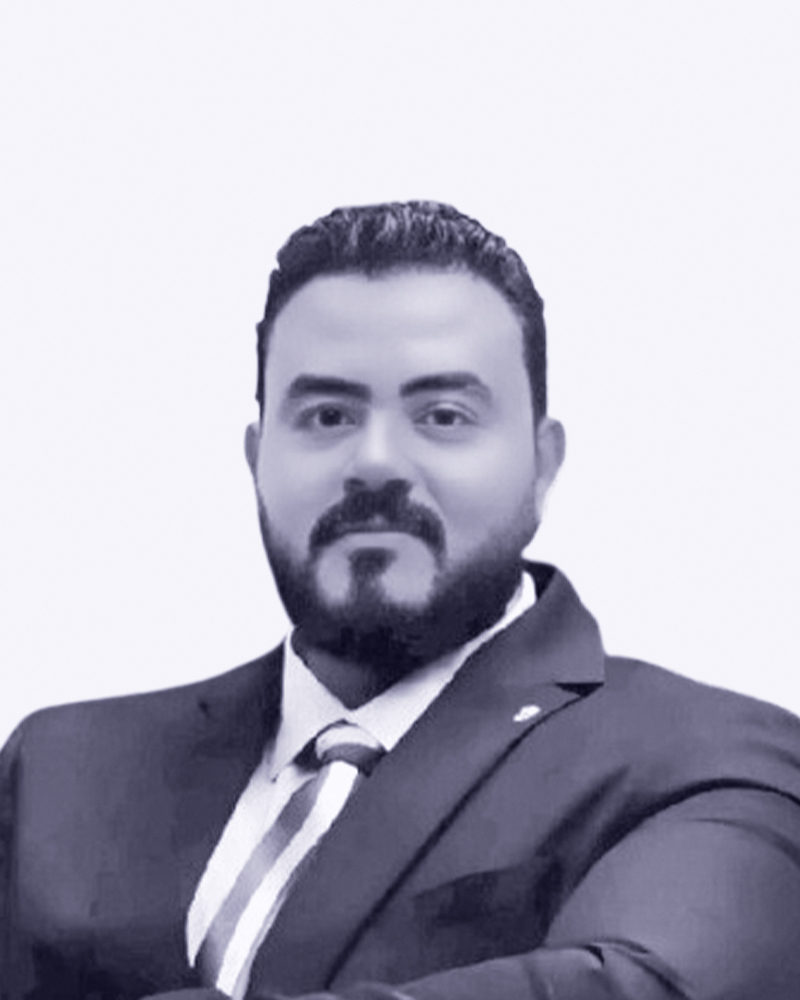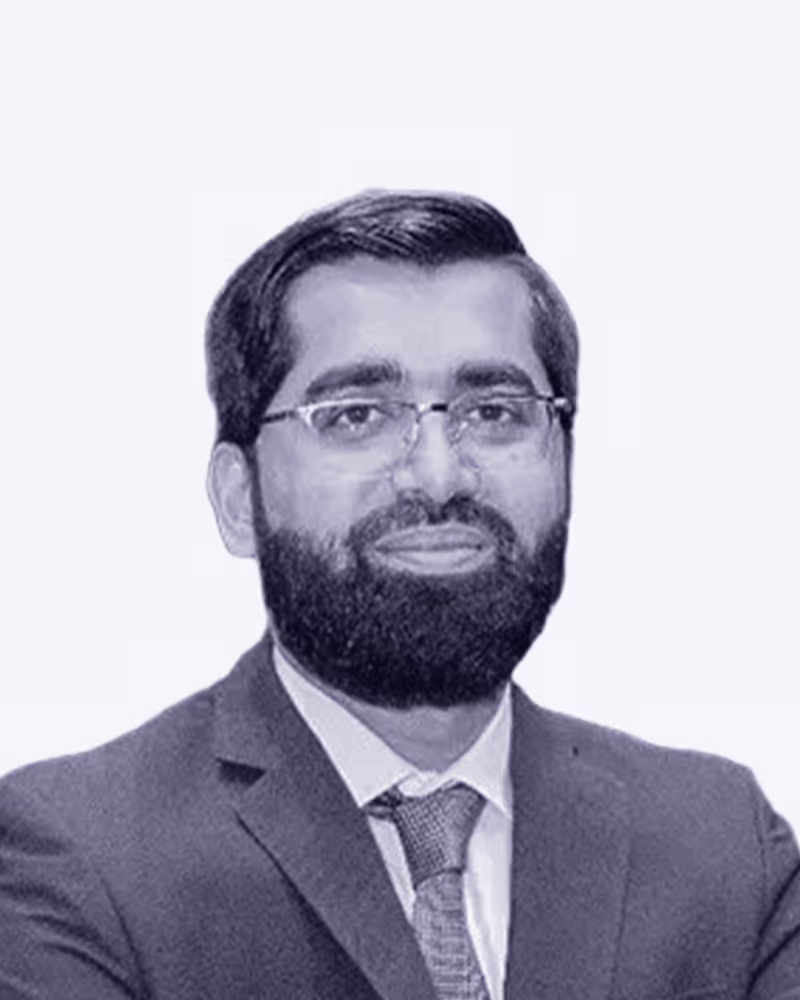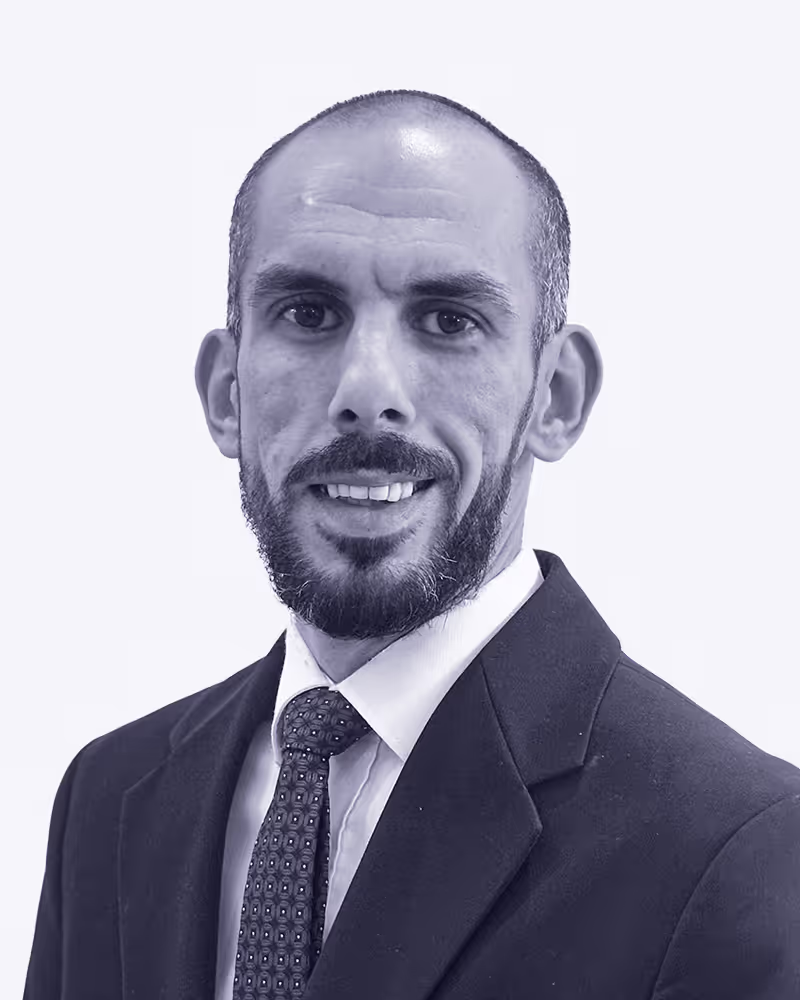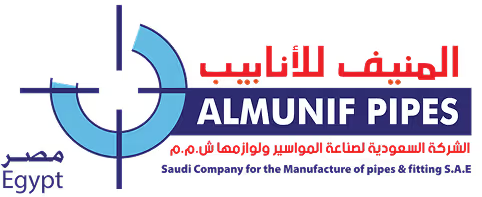Chief Future Officer
MIDDLE EAST
Discover Middle East's fastest-growing community of finance experts. Join us for candid discussions, exclusive events & tons of networking opportunities, where valuable insights await to empower your journey in the future of finance.
Finance Meet-ups:
Physical workshops, social networking gatherings, and live webinars focusing on core finance and accounting topics.
Online Community
An active community on Whatsapp and a dedicated space for exchanging strategies and job opportunities.
Educational Material
Expert interviews, comprehensive articles, and guides prepared to help finance leaders
The Job Vault
A curated job board connecting finance professionals with tailored job opportunities and resources for career growth.
Engage with top finance minds from Middle East's rapidly evolving companies














Events at Alaan
Join the discussions on everything fintech
Chats with Chief Future Officers
Top leaders in the Middle East discussing the future of finance




“Launching a startup is an emotional education. Investors may reject you, products may fail, but your purpose must stay intact.”

Tell us a little bit about your journey and how did you get here?
My journey started in Egypt, where I built my basic skills working across industries like manufacturing, construction, and logistics. I began as an accountant and gradually moved into senior roles. I’ve always been curious, not just about the numbers, but how businesses operate from the inside. In 2013, I had a major turning point. I moved to Saudi Arabia and started leading finance teams, setting up ERP systems, and working on long-term financial planning. I got the opportunity to work across sectors including trade, and now healthcare, so I’ve experienced both traditional finance and fast-growing business environments.
Along the way, I earned my CMA and CSCA certifications, and recently completed an MBA from an online university in the U.S. These helped me sharpen both my technical skills and strategic thinking. Most recently, I started a company called Bright Talent Acquisition. It's a sports tech startup based in Saudi Arabia. We built an online platform called Here’s My Talent, which connects football players, amateur and professional, with clubs looking for new talent. That’s the journey that brought me to where I am today.
Today you're both a CFO at TrustMed and founder of a sports tech startup. How do you personally balance the structure of finance with the uncertainty of building a startup from scratch?
It’s not easy, it really is a daily juggling act. At TrustMed, as CFO, I work in a structured environment with clear deadlines, rules, and data-driven decisions. My focus is on running the company smoothly, keeping it financially healthy, and ensuring growth. With the startup, Bright Talent Acquisition, it’s a completely different world. Things change quickly, and there’s a lot of uncertainty. You’re constantly learning, even from a user comment or an MVP test. You often don’t have clear answers. In the CFO role, you have solid data. In a startup, you have to move fast and be okay with imperfection. What helps is mentally separating the two roles. I apply structure and discipline from my finance background where it helps, but also give myself room to be flexible and creative in the startup space. Interestingly, my CFO skills, budgeting, risk planning, have been very useful in the startup. It’s not about choosing between structure and chaos; it’s about using the right approach at the right time.
Despite having such a vast background in finance and planning, what’s one thing about launching your own startup that was very unexpected?
What caught me off guard the most was how emotionally intense entrepreneurship is. In finance, we often operate within a rational framework, there are profit margins, forecasts, KPIs. But when you launch something of your own, it becomes incredibly personal. No spreadsheet can prepare you for how it feels when an investor says no, or when your first version of the product doesn’t land as expected. You deal with bugs, unexpected feedback, and a lot of uncertainty. It’s a completely different experience from working in a structured CFO role. I also underestimated how much soft influence is needed early on, you’re not just convincing customers, you’re convincing your team to believe in your vision, often before there’s any revenue or traction. While my finance background helped keep me grounded, nothing prepared me for the emotional rollercoaster. I had to learn how to ride it, with resilience and a strong sense of purpose.
You’ve implemented multiple ERP systems. What’s something you had to unlearn when it came to building financial systems for your own startup?
It’s something a lot of finance people struggle with when moving into startups. In a corporate setting, we’re trained to build systems that last, with defined hierarchies, audit trails, and detailed documentation. That’s valuable, of course. But in a startup, that mindset can slow you down. I had to unlearn my obsession with building the perfect system. I focused instead on building what’s useful today. For example, in Here’s My Talent, I started with Google Sheets and a basic analytics dashboard. What mattered most was visibility, not perfection. Later, once we validated parts of the business model, we began layering in automation and integration. Just a few days ago, we published our MVP product and it landed successfully.
The lesson: don’t build for scale before you’ve earned the right to scale. First, validate.
When you're hiring for finance roles, what’s something you always look for beyond just what’s on their resume?
Beyond technical skills, I look for intellectual curiosity and adaptability. In a dynamic setting, you need people who don’t just follow processes, they question them. I value candidates who ask: Why are we doing it this way? How can we do it better? That shows they’re using their mind. Adaptability is critical. Growth and transformation require people who can learn, unlearn, and adjust quickly. I also place high value on emotional intelligence. Finance doesn’t operate in isolation, you need people who can communicate across teams, handle ambiguity, and stay focused under pressure. These are the qualities that drive real impact beyond the numbers.
You’ve led teams through change. What’s one lesson you’ve learned about getting people to actually adopt change and not just tolerate it?
Change management is where many good ideas fail. The biggest lesson: people are far more likely to embrace change when they feel ownership. Top-down mandates often create resistance. But when you involve the team early, ask for input, address concerns, and give them a role in shaping the outcome, you build real buy-in. How you frame the change matters too. It’s not “we’re implementing new tech to cut costs.” It’s “we’re freeing you from repetitive tasks so you can focus on strategic work”. Celebrate small wins. Break projects like ERP into phases, and celebrate after each one. Recognize early adopters. Keep the dialogue open, ask if you're on the right path. Change management isn’t just about systems. It’s about people. If you give people what they need and involve them from the beginning, the results will follow.
We’re hearing a lot about AI in finance. What’s your honest take? Where can AI really help and where does it fall short?
AI is a powerful enabler, especially in areas like automation, fraud detection, and predictive analytics. It can process vast amounts of data quickly, helping finance teams shift from manual tasks to higher-value decision-making. But AI has limits. It’s great at telling you what happened or what might happen, but it struggles with context and can’t make ethical judgments.
Finance isn’t purely data-driven. It requires strategic thinking, prioritization, and understanding the “why” behind the numbers. I see AI as a co-pilot, not an autopilot. It enhances human capabilities but doesn’t replace experience or critical judgment.
One of my friends once asked if AI would replace him. I told him no, it won’t replace you, but someone who knows how to use AI might. You need to learn how to work with it. If you don’t, it’s not AI that will replace you, it’s someone who does.
Saudi Vision 2030 is really changing how industries are moving. What shifts have you seen on the ground that feel genuinely new?
The change is real. Vision 2030 is creating visible transformation across industries.
One big shift is reducing dependence on oil and investing in new sectors like tourism, entertainment, and technology. These used to be smaller but are growing fast now. The private sector is expanding, and local companies and entrepreneurs are getting more opportunities. There’s a big focus on developing local talent, more Saudi nationals are leading projects, starting businesses, and driving innovation. It’s not just about infrastructure. It’s about building skills, ideas, and global connections, across the whole country, not just Riyadh. For example, when I launched Here’s My Talent, I needed government paperwork. I asked someone where to go, and they said, “Don’t go anywhere. Just apply online”. I got my certificate in seven days, without meeting anyone face-to-face. Everything’s digital now. ATM cards, Iqama, government services, you can get them from your phone. It’s incredibly efficient.
Looking back, what’s one transformation or project that you’re the proudest of?
One project I’m really proud of is leading the end-to-end implementation of the OODA ERP system at TrustMed. It wasn’t just a tech upgrade, it was a full business transformation. We integrated finance, HR, procurement, sales, and inventory into one centralized platform.
Manual processes were reduced by more than 60%, and reporting cycles became much faster. For the first time, leadership had real-time visibility into both operational and financial performance. They could log in and get the data instantly. This visibility helped us make better decisions early, and as a result, our sales in Q1 and Q2 of 2025 increased by over 50% compared to the same period in 2024. But the real success wasn’t the tech, it was the change management approach. From day one, we involved stakeholders across functions, built ownership, and invested in training. We identified internal champions who became advocates. That’s what made adoption stick. It didn’t just make operations smoother, it fundamentally changed how we make decisions and manage growth.
You’ve been a CFO, a founder, and a mentor. How do you define good decision making, especially when there’s no perfect answer?
Effective decision-making, especially under pressure, relies on three things: strategic clarity, judgment, and accountability. Strategic clarity means being aligned on the bigger picture. You don’t just solve the immediate issue, you make sure the decision supports long-term goals. Good judgment combines data with experience. In real life, information is often incomplete or changing. You need structured thinking and business sense to navigate that. And finally, true decision-making means being accountable. You own the outcome, communicate it transparently, and adapt when new information comes in. A good decision isn’t just about the result, it’s about the rigor and integrity behind how it was made.




“The most important thing is balancing your long-term investments with your short-term regulatory shifts which are coming in on a regular basis.”

You’ve had a dynamic career. From Big Four audit to port development and real estate ventures. Tell us a bit about your journey.
I was born and raised in Jeddah in a humble household. My father worked in Saudi Arabia for nearly 40 years, and he always believed in both education and business. Studies build a foundation, but business brings its own blessings. That philosophy has guided me throughout my life. After schooling in Jeddah, I moved to Pakistan for higher education and came across ACCA, which was still relatively unknown at the time. Inspired by a family friend, I pursued it. It wasn’t easy, I failed some papers along the way, but those failures taught me more than my successes did. Completing ACCA in four years gave me a strong foundation. Like many Asian chartered accountants, I knew the best start was with a Big Four firm. So in 2003 I joined KPMG Karachi while still finishing my last paper. A year later, I returned to Saudi to support my family, and in 2004 I joined EY Jeddah, the then leading firm in the region. Over nine years, I worked with more than 100 clients and had excellent mentors. That period truly shaped who I am today and it was the foundation of my professional journey.
After EY, how did you transition into real estate and port development?
At EY, I advanced quickly, receiving seven promotions in nine years, but the demanding lifestyle was difficult to sustain, especially after marriage. The long hours made me consider a move into industry. At senior manager level, it wasn’t easy to find suitable roles, since most people advised moving out earlier, at assistant manager or manager level, but I kept searching. Eventually, I received an offer from King Abdullah Port, a startup at the time. They were specifically looking for someone with a Big Four background to help establish proper financial systems. When I joined, there were no proper accounting systems, policies, or reports, and even the last year's audit was pending. I rolled up my sleeves and cleaned the books myself, creating a trial balance that could be audited. It was a massive change from managing teams at EY to personally entering debits and credits, but it gave me invaluable hands-on experience. Over four years, I built the finance function from scratch, but eventually I wanted to grow further. Around 2018, after a series of recruiter-led interviews, including six or seven rounds, I was offered a senior role at a joint venture between Saudi Aramco and a large local group. Despite not having CFO experience at the time, they trusted my potential, and I joined. Since then, I have been with them for almost seven years, gaining exposure to large-scale real estate development, financing, and governance at the highest level.
When you're managing long-term capital in a region like KSA, what's the biggest challenge and how do you work around it?
Managing long-term capital in Saudi Arabia comes with several challenges. First is balancing long-term projects, which often run for 20 years or more, with the short-term regulatory changes that are frequent in the Kingdom. The government continuously introduces new regulations to improve the ease of doing business and attract investment, especially in real estate, where laws are still evolving. This requires agility to adapt without losing sight of long-term goals. Second is building strong banking relationships. For long-term financing, banks must be true partners, willing to provide flexibility and support through economic cycles. Fortunately, Saudi banks are becoming increasingly supportive and competitive, which makes these partnerships possible. Third is scenario planning. In a region where economic conditions shift frequently, companies must run flexible forecasts alongside their long-term budgets to ensure they stay aligned with strategic goals. Regularly testing different scenarios helps prepare for unexpected changes and ensures that after 20 years of investment, the company is still on track to achieve its objectives.
With Vision 2030, what shifts are you seeing on the ground, and where can finance leaders really make an impact?
Vision 2030 is transforming Saudi Arabia’s business landscape and requires a complete shift in mindset. Traditionally, companies focused mainly on generating profit and cutting costs, but today’s businesses must prioritize value creation. Success depends on identifying customer pain points and solving them in innovative, technology-driven ways. For example, retail may always have supermarkets, but introducing features like self-checkout or enhanced customer experiences creates real value. The government is actively driving this transformation, with PIF launching major projects like Alat, a tech and hardware company working with global leaders, and AI-focused ventures such as Humaniq. These initiatives show that Saudi Arabia is investing heavily to ensure it is at the forefront of global innovation. For finance leaders, this means a new role: moving from policing budgets to collaborating across departments. In the past, finance would send Excel sheets to other teams, compile numbers, and later criticize variances. Now, finance leaders must work closely with business heads, using data to help them achieve their goals. Finance holds all the company’s data, so the CFO’s job is to provide insights that enable strategy, not just report numbers. The CFO role has shifted from financial reporting to becoming a true partner to the CEO and leadership team, influencing long-term strategy and guiding companies toward Vision 2030 goals.
You have led multiple ERP and IFRS transitions, but transformation is never just about systems. What’s something you’ve learned the hard way about getting people to buy into change?
Transformation often fails not because of the wrong system or software partner, but because of people. Studies show that up to 80-90% of transformations collapse due to resistance from employees, usually driven by fear. When automation is introduced, for example, automating bank reconciliations, invoice processing, or reporting, employees worry they will lose their jobs. The most important lesson I’ve learned is that leaders must communicate the “why” clearly and show employees how the change benefits them. Instead of repetitive manual tasks, they can shift toward more valuable, decision-making roles. While it’s true automation may reduce some roles, history shows technology creates more jobs in the long run, Excel, once feared for eliminating accounting jobs, instead created countless new opportunities. To succeed, leaders must involve their teams early, celebrate small wins, and give ownership of results. It’s also vital to integrate systems properly; many companies buy the best tools but fail to connect them, leading to inefficiencies. Ultimately, transformation succeeds when people are engaged, motivated, and see technology as an enabler, not a threat.
You’ve invested heavily in leadership development at places like Stanford, Harvard, and London Business School. What’s one lesson from all that learning you apply most often today?
Continuous learning is essential. I qualified as an ACCA in 2003, and since then the world has changed dramatically, especially with the rise of AI and digital technologies. Knowledge quickly becomes obsolete, so if you don’t keep learning, you stop growing. While I may not apply every detail from my courses, I now know these ideas, frameworks, and technologies exist, so when the right situation arises, I can use them. Leadership training also reinforced that technical skills are not enough at senior levels. Nobody doubts a CFO’s ability to understand accounting; what matters is how well you lead, manage teams, and influence outcomes. Soft skills, communication, collaboration, empathy, are critical, and they require constant practice, not just one course. Leadership is a long-term investment, and these lessons guide me daily in balancing strategy, people, and change.
You’ve worked across organizations with very different speeds and cultures. When you walk into a new company, how do you assess what kind of finance team it needs?
Having worked in both established giants like EY and startups such as King Abdullah Port and my current housing development company, I’ve learned that building the right team depends on the stage and vision of the organization. In startups, you often have to create the entire finance function from scratch, hiring people who can adapt quickly and work without rigid structures. The most important trait I look for is attitude. Technical skills and qualifications matter, but they can be taught or developed; attitude cannot. One of my CEOs taught me that if a person has the right mindset, openness, willingness to learn and teamwork, they can be molded to succeed. He would often hire based on attitude more than resumes, and it always worked well. That experience shaped my own approach: I want good humans with strong attitudes, because skills can be learned, but attitude drives success and resilience.
When you’re hiring, what’s one trait that tells you someone is ready for a finance role in a fast-changing business?
The key trait is willingness to roll up your sleeves and do whatever is needed, regardless of title. In fast-moving companies, especially startups, you can’t afford to be rigid about roles. When I left EY as a senior manager with teams under me, I joined King Abdullah Port where I personally passed accounting entries for months to clean up the system. Later, at my current company, I was the second employee after the CEO. For six months I ran everything on Excel alone, closing books manually and reporting to the board until we implemented ERP. Those experiences taught me that no matter your title, adaptability and readiness to get hands-on are crucial. The right person for a finance role in a dynamic environment is someone who combines professional competence with humility and a can-do attitude.
AI is entering every part of finance. Which areas are really ready for automation, and which still need human judgment?
AI is best suited for rule-based, repetitive tasks. Processes like reconciliations, invoice processing, report generation, budgeting, and forecasting, as long as rules are well defined, can be automated efficiently. These are areas where AI can save time and reduce errors. However, when it comes to judgment, ethics, or decision-making, humans remain essential. AI can only analyze patterns from historical data; it cannot think contextually or ethically like humans. Therefore, I see AI as a co-pilot rather than a pilot, a support tool that augments human decision-making rather than replaces it. The future will be about collaboration between humans and AI, using automation to handle the routine while humans focus on strategy, creativity, and leadership.
If someone had only five minutes with you, what’s the one piece of advice you’d want them to walk away with?
My three pieces of advice:
- Gratitude. Take care of your parents and responsibilities, their support has been central to my success.
- Find your niche. You can’t be an expert at everything. Focus on one area and build deep expertise (FP&A, finance business partnering, BI, etc.).
- Don’t rely only on a paycheck. Build skills or side projects that give you independence and resilience.
-
Bio
Muhammad Anis Younus is the Chief Financial Officer and Board Member of Al Fadhili Housing Company, a Saudi Aramco and MASIC joint venture. With over 20 years of experience spanning audit, ports, real estate, and infrastructure development, he has held leadership roles at KPMG, EY, and King Abdullah Port before moving into his current role. An ACCA-qualified professional, he is recognized for building finance functions from the ground up and driving long-term financial strategy.




“Acquisitions are not about now, but forever. It’s not just about winning a deal today, it’s about the long view, the trust you build, and the relationships that carry the integration forward.”

What were the most important moments or decisions that shaped your journey into the CFO seat today?
The pivotal moments were when I shifted from purely transactional finance into operational finance. I started focusing on business priorities and stakeholder challenges. That shift in mindset increased my recognition and the value I was providing. For example, when I worked with our back-office operations outside the UAE, I identified gaps not only in finance but also across other areas. Streamlining those processes increased my visibility. Later, I focused on building relationships with department heads, resolving friction points, and establishing workflows. Taking ownership of functions like HR, legal, IT, and compliance also reduced the management team’s operational load and increased my perceived value. For me, it was never about chasing a title, it was about becoming a core part of the business. Once people understood that I could connect finance, operations, and strategy, I stepped into that role of strategic business partner.
Across your career, one theme stands out: building systems. Where does that builder mindset come from, and what’s one system you’re really proud of?
That’s a very insightful question. The builder mindset comes from my personal journey. Until the end of high school, academics weren’t easy for me. I had learning difficulties and couldn’t simply memorize large amounts of information. I had to work hard to keep up. What helped me was visualizing things, breaking down complex data into flow charts and logical steps. That became second nature: taking chaos and creating clarity. As for systems I’m proud of, the first is a cash projections system I built after COVID. Agency life is unpredictable, revenues fluctuate, retainers change, expenses vary. The system collected inputs from multiple departments on different cycles, allowing us to smooth cash flow and maintain reserves. The second is our month-end closing system. We consistently close within five to seven working days, and not just procedural closings, true business performance closings. It runs so seamlessly that others don’t feel the pressure, though it requires a lot of work from the team.
You’ve led companies through mergers, acquisitions, PE rounds, and integrations. What have you learned about staying grounded and sharp when the pressure is on?
One of the biggest lessons was realizing that deals are not about the present moment, they have long-term consequences. Negotiations aren’t about winning now but about building for the future. Another lesson is that while financial and operational synergies are important, the relationships and trust built during a deal are equally critical for integration. Finally, I learned that people observe you more closely than you think. They notice how you present yourself, your vision, intention, and passion. That impression lasts. For example, the credibility I built before COVID helped me renegotiate successfully during COVID.
You said it’s important how you present yourself. Could you elaborate?
People understand your vision, your intention, and your strategic view. If they see you as reliable, they’ll trust your judgment, when you call something good, bad, or difficult. That trust is invaluable, not only during integration but also for future relationships and deals.
How do you personally approach change or transformation, and how do you keep teams aligned?
I don’t see transformation as a project; I see it as a process. I usually have more visibility into the challenges and friction points, so I prepare early. Mainly,I don’t fixate on one outcome, I play out multiple scenarios in my head, including their pros, cons, and possible obstacles. That way, when reality happens, I can pivot quickly. When it comes to teams, I don’t aim for 100% alignment. Instead, I focus on the key stakeholders most affected by the change. I keep them informed about what’s fixed, what’s evolving, and what challenges may arise. I involve them in brainstorming solutions so they’re not blindsided, and alignment at the top cascades to the rest of the teams. Each department has its own language, so communication must be tailored, not a generic corporate message.
How do you get business teams to care about governance without it feeling like a chore?
Honestly, governance can sometimes feel like a chore. But I frame it as a shared responsibility, not just finance’s responsibility. I also acknowledge it’s extra work for revenue teams, so I approach with compassion and collaboration. I keep templates flexible, the outcome matters more than rigid formats. For senior leaders, though, compliance is non-negotiable. They need to own it as part of leadership.For wider teams, I focus on making governance useful for them. For example, revenue reports help finance with forecasting but also help client teams track portfolios, plan capacity, and allocate resources. When people see the value, cooperation improves. My belief is simple: any system sticks only if all parties benefit.
Where do most finance teams go wrong in partnering with the rest of the company?
Teams often act as if they have different agendas, but in reality, everyone is working toward the same goal. There’s also sometimes a bias that values, the revenue-generating teams more than non-revenue ones, and that creates friction. I believe CFOs must actively bridge this gap by showing value, building relationships, and aligning with revenue heads so trust cascades downward. Finance teams also need to be operationally savvy, understanding the daily realities of client-facing colleagues. And most importantly, change must come from the top. If the CEO doesn’t enable finance to act as a strategic partner, no matter how capable a CFO is, integration won’t happen.
When you look at AI and automation in finance, what makes you say “yes, this is worth it”? Have you found such a tool for your finance team yet, apart from the usual ones?
Today, AI tools aren’t optional, they’re essential. Industries are evolving at an exponential pace, and businesses must adopt new tools to keep up, remain profitable, and scale. Yes, we push teams to explore and rework workflows, because tools themselves are evolving rapidly.
In finance, I look for tools that:
(1) Integrate seamlessly with existing operations,
(2) Improve productivity without adding complexity, and
(3) Operate at a foundational level, not as standalone fixes.
Standalone tools may work today but fail tomorrow as the business evolves. Right now, we use smaller add-on tools that integrate well and reduce complexity, such as DocuSign or HR platforms. A full ERP change is still on the horizon.
When you’re hiring today, what’s one quality you look for that you didn’t emphasize earlier?
I’ve always looked for curiosity to learn and the willingness to unlearn, that’s been essential for building integrated finance approaches. But today, one new priority is tech savviness. Candidates need to explore tools, test solutions, and improve productivity on their own, not wait for managers. Five years ago, I emphasized adaptability and communication more, but today, tech ability is essential.
Bio
Sireesha Venkata is the Chief Financial Officer of BPG Group, a fully-integrated marketing agency, and previously CFO of Socialize\ We Are Social Dubai. With over two decades of experience across global organizations, she has led finance teams through transformation, integrations, and growth journeys. Recognized for building systems that streamline operations and for driving finance beyond reporting into strategy, she continues to champion resilience, foresight, and collaboration as hallmarks of the modern CFO.
.avif)



"You really don't learn and grow if you don't take on new challenges. I think that's the only way you can develop.”
.avif)
You’ve had an incredible career that’s taken you from Lebanon to the US and now Saudi Arabia. Can you walk us through your journey and the key moments that shaped it?
I started my finance career young, working full-time during college for a Luxembourg-based oil and gas group. It gave me early exposure to international reporting, IFRS, and real-world consolidation, which was rare at the time, especially in Lebanon. From there, I moved across industries, entertainment, food and beverage, real estate, and renewables, each with its own learning curve. One of the most pivotal roles was with NES, where I stepped in as interim CFO for the US entity, overseeing operations in the Nordics and Central Europe. It was unfamiliar territory, US GAAP, smart metering, international audits, but I said yes before overthinking it. That role taught me how quickly you grow when you take on something you're not quite ready for. More recently, I relocated to Saudi with my family to lead finance for the Middle East at Assystem Radicon. It was a major life shift, but the right one, for both career and personal growth.
You’ve led finance across continents, industries, and major transformations. If someone asked, “What kind of CFO are you?”. How would you describe your approach?
I don’t like to put labels on things, what matters is whether you’re competent or not. In finance, progress depends on more than experience; it’s about technical skills, business understanding, and strategic thinking. I’d describe myself as a strategic transformation leader who’s also hands-on. I believe in continuous learning and staying current, because the world is changing faster than we realize. Numbers aren’t just debit and credit, they tell a story, and I encourage my team to see them that way. Even junior accountants shouldn’t think like bookkeepers. You can’t succeed alone in this role; you need empowered, supported teams. Especially in SMEs, being hands-on means being informed and involved, not micromanaging, but understanding the full picture.
You worked your way up from senior accountant to CFO across multiple countries. What’s one leadership lesson you wish you’d learned earlier?
One leadership lesson I wish I’d learned earlier is how to handle criticism. In the beginning, even constructive feedback would stress me out, not outwardly, but internally. Over time, I realized that valid criticism is often what helps you grow the most. I also used to react quickly, getting frustrated or angry too easily. With maturity, I’ve learned to pause, sleep on things, and revisit them with a calmer mindset. Another key lesson came from a former manager who told me, “No one is indispensable.” At the time, I didn’t fully accept it, but now I understand, no matter how impactful you are, life and business move on. That perspective has stayed with me.
At NES, you led major debt and business restructures. When you’re steering a company through financial uncertainty, what’s the principle you always come back to?
When navigating financial uncertainty, the principle I always come back to is cash management. I once showed a board slide with a tree growing dollars and said, “I wish this were real, but it’s not.” You need to manage working capital properly, collect receivables, plan payables, and control costs smartly. That doesn’t mean slashing headcount recklessly; short-term fixes can backfire. Risk management is just as important. The real danger is not foreseeing issues. I’ve had to manage cash flow daily in some situations, and rolling forecasts are a must. Access to diversified funding is also crucial, even if you don’t need it today, you should be prepared. And relationships matter deeply, especially in our region. Payments often depend on personal connections, so strong communication with stakeholders, customers, and vendors is essential. Finally, recurring revenue can offer stability, if one part of the business struggles, another can carry the weight. It’s never just one fix; it’s a full cycle of planning, foresight, and smart relationships.
With tighter cash positions and rising borrowing costs, how are you thinking about cash flow differently today and what practices do you think more finance teams in the GCC need to adopt?
With tighter cash positions and rising borrowing costs, I know I need to think about cash flow with more agility and foresight. Static monthly forecasts are no longer enough, my team and I need rolling forecasts and near real-time visibility to stay ahead. I also recognize the importance of diversifying funding sources, even when liquidity doesn’t feel like an immediate concern. For me, automation should take over repetitive finance tasks like invoice processing and reconciliation, so that my team can focus on what really matters: strategic planning and scenario analysis. And especially here in the GCC, where trust often shapes business decisions, I’ve learned that maintaining strong relationships with vendors, customers, and financial partners gives us critical flexibility during uncertain times.
AI and automation are changing how finance teams operate. What’s one area where tech has made a real difference for your team and one where human judgment still matters most?
Accounts payable is a good example of where automation helps. We’ve implemented systems that automate invoice entry, payment planning, and other AP tasks. That saves time and reduces errors. It also allows our team to focus on more meaningful work, analysis, reporting, and planning. We’re also exploring tools like Power BI and Copilot to help with analytics and reporting. While we’re not at the most advanced stage yet, we’re evaluating these tools to see how much value they can bring. But even with all that, human judgment still matters. Planning, analysis, strategy, those require a person. You can automate the data collection, but turning those numbers into a plan or telling the story behind them? That’s still a human task. Finance is about answering: where are we now, where do we want to go, and how do we get there?
When hiring for your finance team, what do you value more: someone who knows the numbers inside out or someone who’s not afraid to speak up? In other words, hard skills or soft skills?
Soft skills. Without question. Technical skills can be learned. Integrity and character cannot.
I always ask candidates: If I make a decision you don’t agree with, what would you do? The best answers come from people who say they’d respectfully speak up, share their point of view, and, if needed, put it in writing. One person gave me that answer, and I hired them. They’re now a financial controller in my team. I want people who challenge me, who ask questions, especially when something seems off. It’s not enough to just follow instructions. If someone knows, for example, that a tax treatment is wrong in a certain country and doesn’t say anything, they’re not doing their job. Soft skills also include ethics. These aren’t things you teach in a training session. People either have them or they don’t. Of course, we can guide and mentor fresh graduates. But that foundational integrity has to be there from the start.
Bio
Layal El Hassani is the Chief Financial Officer for the Middle East at Assystem Radicon, a leading engineering and project management firm driving energy transition and infrastructure transformation across the region. With over two decades of experience, Layal has led finance functions across Lebanon, the US, and Saudi Arabia, working in industries ranging from oil and gas to entertainment, real estate, renewables, and smart metering. She is known for her strategic thinking, hands-on leadership, and ability to navigate complex financial challenges with clarity and integrity. Layal believes in building empowered teams, leading transformation from the front, and using finance not just to report the past, but to shape the future.




"The biggest challenge wasn’t the procedures themselves but shifting the mindset, especially when it comes to sharing financial data and institutionalizing decision-making. Today, transparency means involving partners and investors in the information, and clear communication is the key to achieving that.

What are the factors that really shaped your career?
At the beginning, people may differ in what they see as milestones. Some may say education or getting a degree is the turning point. For me, the real change was an opportunity because I’m someone who likes to look beyond core business and learn from other departments. Unfortunately, not many companies accept this, but I advise everyone to seize such opportunities because they give you knowledge and skills, and from there you start to change. This is what happened to me. Others may have different answers, but I consider the opportunity to change is to put more effort and seek more knowledge.
Why did you move from Jordan to Saudi Arabia?
Saudi Arabia is a big market with a lot of opportunities and growth. I started in Jordan’s domestic market and then moved. Saudi Arabia offers more opportunities than others. It is promising, and thank God I am still here because it has a future.
How would you describe your role during this transformation phase at AlMunif Pipes Company? What challenges did you face in convincing management, and how can finance professionals effectively deal with such challenges?
At this stage, my role was central in leading the transition from a family-owned business to a company under formal governance and transparency structures in preparation for entering the financial market. The biggest challenge wasn’t the procedures themselves but shifting the mindset, especially when it comes to sharing financial data and institutionalizing decision-making. While some may find this difficult, fortunately, our management was understanding and aware of the importance of this transformation. Convincing leadership isn’t always easy, especially when it involves making previously confidential information public. That’s why financial experts must be able to clearly communicate concepts and policies in a professional way that suits the audience’s background, particularly if they lack financial expertise. Today, transparency means involving partners and investors in the information, and clear communication is the key to achieving that.
You have spent many years in the industry. What are the challenges for the people in finance?
The industrial sector is one of the most challenging for financial people because it relies heavily on cost accounting and administrative decisions, which are complicated. There are challenges related to the diversity of costs and decision-making in this sector.
In your journey, if you had to talk about your experience, you were in the United States working on collective financial tasks. What was the most important lesson you learned?
Leaders in companies must know how to speak the same language because sometimes companies in a group operate in different countries. Being dynamic and unified in communication is essential. Independence in reports and communication makes things easier. I learned this and still apply it.
What do you think about the management of financial flows? Is there any advice you'd like to give finance managers?
Cash flow management is simple in concept , it’s about timing cash in and out. Timing is very important. Forecasting cash flow with multiple scenarios is crucial. If cash flow is low, you need to reduce time and work on a smaller scale. Also, improving cash flow involves other factors like reducing average collection time.
How do you see the role of finance in line with Vision 2030?
Finance today is more strategic. To achieve more, it must follow the rhythm of Saudi Arabia’s fast-growing economy. Financial decisions, startups, and strategies must be effective and aligned with Vision 2030, which is a long-term strategic plan. Financial administrations must prepare to be part of this change and build future plans, including predictions and expectations starting now.
We see a great emphasis on the acquisition of technology. How do you deal with technology today?
Technology is part of business and must be integrated because it speeds decision-making. It is used in accounting, financial management, analysis, and production. Companies use technology in various ways; it would be strange not to use technology in industry today.
From your experience in building a team, should the financial professional think from a business perspective or should he have technical skills?
There should be a balance, but I am business-oriented. As a finance leader, you make things easier while the business runs. Sometimes financial procedures can overpower business, and sometimes vice versa. I prefer business to come first.
If you could automate one important financial task forever, what would you choose?
I would choose to automate cash flow management through a system that accurately forecasts cash flow. I’ve already started working on it, and hopefully, it will be successful.
What’s more exhausting: budget season or audit season?
Budgeting season is more difficult because it requires more effort. Reviewing the numbers is clear, especially since I come from an auditing background, but preparing the budget takes more time, thought, and coordination.
Do you use any tool with your team regularly other than Excel?
Not on a daily basis, but we often use SQL – Server Query Language. I sometimes work directly with the server, which makes it easier to extract some ready reports from the system without needing manual access. It’s one of the tools that has helped me a lot, especially since I have some basic knowledge of programming.
Bio
With over a decade of extensive experience in accounting, auditing, and financial management Dr. Mohammad Maaytah, a PhD scholar and CMA (Certified Management Accountant) has built a proven track record of driving organizational growth and creating long-term sustainable value. Based in the Kingdom of Saudi Arabia, he currently serves as Chief Financial Officer (CFO) of AlMunif Pipes Company, where he has successfully aligned financial strategies with organizational objectives to strengthen liquidity, enhance operational efficiency and support the Kingdom’s economic transformation in line with Vision 2030.




“Transformation is not a one-day story. It’s about how you manage the middle, the broken pieces, the low-hanging fruit, the structural changes. That’s where real leadership shows.”

You’ve had such a dynamic career across sectors - public, private, IPOs, transformations. Before we get into all of that, I’d love for you to tell us a bit about your journey.
My career has been a long, dynamic journey, one I often compare to a flight, with different phases, destinations, and moments of turbulence. It began in 1994 at American Express, where I built a strong foundation in finance, moving through roles like accountant, chief accountant, and supervisor while earning my CPA. From there, I took on leadership roles across both the public and private sectors, helping organizations through major transformations, whether it was transitioning from cash to accrual accounting, implementing ERP systems like Oracle and SAP, or preparing for IPOs. One of the highlights was leading the IPO of the National Company for Learning and Education in Saudi Arabia, where I saw firsthand how a family-run business could evolve into a publicly listed market leader. Over the last 30 years, I’ve worked across different regions—including the Middle East, North Africa, and Europe, gaining perspective not just on finance, but on people, culture, and change. Each experience added a new layer to my journey, and I still believe there’s more to come.
You’ve worked in both the public and private sectors. What’s something you learned in government that the private sector often overlooks and vice versa?
Working across both public and private sectors taught me that each side operates with a very different mindset, and both have blind spots. In government roles, I saw how ambitious and forward-looking public sector organizations can be, especially in places like Saudi Arabia where there’s strong backing for transformation and investment in long-term systems. They often have the freedom to build for the future without the same budget constraints or short-term pressures that private companies face. On the other hand, the private sector is typically more disciplined when it comes to cost control, ROI, and decision-making speed, because they’re accountable to shareholders and competition is real. What the private sector sometimes overlooks is the value of investing early in foundational systems and long-term planning. And what the public sector can miss is the urgency and commercial edge that comes from operating in a more competitive environment. The sweet spot lies in borrowing the best of both, being strategic like the public sector, but lean and execution-focused like the private one.
You led the IPO for the National Company for Learning and Education. What do people not talk about enough when it comes to taking a family-run company public?
What people don’t talk about enough is how emotionally and operationally intense it is to take a family-run company public. On paper, it looks like a financial milestone, but behind the scenes, it’s a massive transformation. Many companies are excited about the idea of listing, but underestimate how much internal change is required to actually get there. From restructuring governance to tightening financial controls and shifting the mindset from family-run to shareholder-driven, it’s a cultural shift as much as a strategic one. There’s often resistance, unexpected costs, and a realization that the six-month IPO timeline you envisioned might actually take two years. In the case of the National Company for Learning and Education, I joined during the final stretch of IPO preparation, and even then, it was clear that their earlier years of groundwork had made all the difference. They invested in systems, transparency, and professional leadership early, and that’s what helped them succeed post-listing. It’s not just about going public, it’s about staying credible once you do.
“Transformation” is often used as a buzzword but you’ve done it for real. What does it actually look like in the messy middle?
Transformation looks nothing like the polished slide decks, it’s resistance, setbacks, and a lot of uncomfortable change. You’re dealing with legacy systems people have used for 20 or 30 years, processes built on habit, and teams who are comfortable in their routines. It’s like waking someone from a deep sleep and asking them to run a marathon. The real work starts with mindset, getting leadership to lead from the front, breaking through resistance on the ground, and making sure people see the “why” before the “how.” Change doesn’t stick unless it’s people-led, not just system-driven. In my experience, you can’t force transformation, you have to seed it, nurture it, and walk through the discomfort with your team. That’s when it becomes real.
How do you get teams to embrace change rather than resist it?
The real shift happens when you stop just reporting numbers and start shaping decisions. Early in your career, it’s natural to focus on spreadsheets and reports, that’s how you build technical credibility. But to grow, you have to move from being the person who prepares the numbers to the person who guides the business with them. That means delegating the routine work, building a strong team, and freeing yourself up to think strategically. You spend more time with other departments, understanding their goals, challenges, and how finance can help. It’s also about communication, translating data into insights that drive action. The ones who make the leap are those who become business partners, not just finance experts. They know the numbers, but they also know the people, the story, and the impact behind them.
Many finance professionals struggle to evolve beyond the “numbers person.” What separates those who do?
The ones who evolve beyond being just the “numbers person” are the ones who realize that technical skills alone won’t get you to the leadership table. It’s not enough to prepare the reports, you need to understand what those numbers mean for the business, and more importantly, help others understand too. That shift starts when you build a strong team you can trust with the day-to-day, so you can focus on the bigger picture. It means spending more time with operations, HR, sales, learning their challenges and showing how finance can support growth, not just control costs. It’s about becoming a translator between data and decisions. The professionals who grow are the ones who step out from behind the spreadsheet and become active, trusted partners to the business.
Where should finance teams lean in when it comes to AI, and where should they be cautious?
Finance teams should lean in on using AI to automate repetitive, time-consuming tasks, things like document analysis, reconciliations, and report generation. These are areas where AI can save hours, reduce human error, and give teams more time to focus on strategic work. But where they need to be cautious is in over-relying on it without validation. AI can speed things up, but it can’t replace judgment. You still need human oversight to review outputs, spot context-specific risks, and make informed decisions. The mindset shouldn’t be “AI will do it for me”, it should be “AI will help me do it better.” Use it as an assistant, not a replacement. And most importantly, lead by example. When teams see their leaders experimenting with and benefiting from AI, they’re more likely to adopt it in meaningful ways.
How do you encourage your team to adopt AI in their workflows?
I keep it simple: I show them, not just tell them. If someone on the team is spending hours on a task, summarizing a report, cleaning data, building a model, I’ll step in and ask, “Have you tried using AI for this?” Then I’ll walk them through how it can help, even if it’s just something like ChatGPT or a basic tool. Most people resist new tech because it feels overwhelming or irrelevant. But when they see a real example, when AI helps them finish in 30 minutes what used to take 3 hours, that’s when it clicks. I don’t push tools they’re not ready for, but I do lead by example and create a culture where it’s safe to try, fail, and learn. You build adoption by making AI useful, not mandatory.
You’ve spent much of your career in Saudi. How is Vision 2030 showing up in everyday business conversations?
Vision 2030 isn’t just a national plan anymore, it’s shaping real, everyday business decisions. You see it in how companies think bigger, move faster, and invest more confidently in growth and innovation. Whether it’s expanding into new sectors, modernizing systems, or scaling operations, there’s a clear sense that the environment is ready for bold moves. I’ve worked with businesses that set 5-year goals and hit them in 2 because the momentum around them pushed everyone forward. Vision 2030 has created a mindset shift, companies aren’t just reacting to change, they’re driving it. And when you operate in a market that’s this ambitious, it raises the bar for everyone.
What advice would you give a first-time CFO in their first 90 days?
Listen first, act later. Your first 90 days as a CFO shouldn’t be about proving yourself, it should be about understanding the business inside out. Spend time with people at every level, not just the executive team. Ask questions, read the financials, study the systems, and observe the dynamics. Don’t assume you need to have all the answers on day one. Instead, build trust by being curious, collaborative, and clear about your intent. Set a simple plan, weekly goals, checkpoints with leadership, and space to adjust as you learn more. And remember, you’re not there to change everything overnight. You’re there to add value without disrupting what’s already working. Be humble, be strategic, and let your impact grow over time.
Where is your journey headed in the next five years?I still see myself in the cockpit, flying, not landing just yet. While I once thought I’d slow down by 60, I’ve realized there’s more to contribute, more to build. Over the next five years, I see myself continuing in leadership roles where I can drive meaningful change, whether that’s guiding a company through transformation, mentoring the next generation of finance leaders, or even taking on strategic consulting projects. Eventually, I do hope to return home to Egypt and live a quieter life with my family. But for now, the journey continues, with purpose, energy, and the belief that there’s still plenty of value to create before I touch down.
Bio
With over 20 years of experience in finance and more than 15 years dedicated to accounting advisory, financial planning, IFRS, and budget control, Amro brings deep technical expertise and executive leadership to every role he takes on.
His background spans corporate governance, policy and procedure development, and organizational planning, with a consistent focus on aligning financial operations to international standards. He also has in-depth experience in ERP system planning, implementation, and optimization.
Known for his analytical skills, strong team leadership, and clear communication, Amro combines financial precision with a practical, results-driven approach.
Guides to fast track your finance
Well-researched guides to help finance leaders in the UAE
Join the Community
Shape the future of finance. Engage with top leaders in the finance industry and become a part of the Chief Future Officer Community.









.avif)












%201.avif)